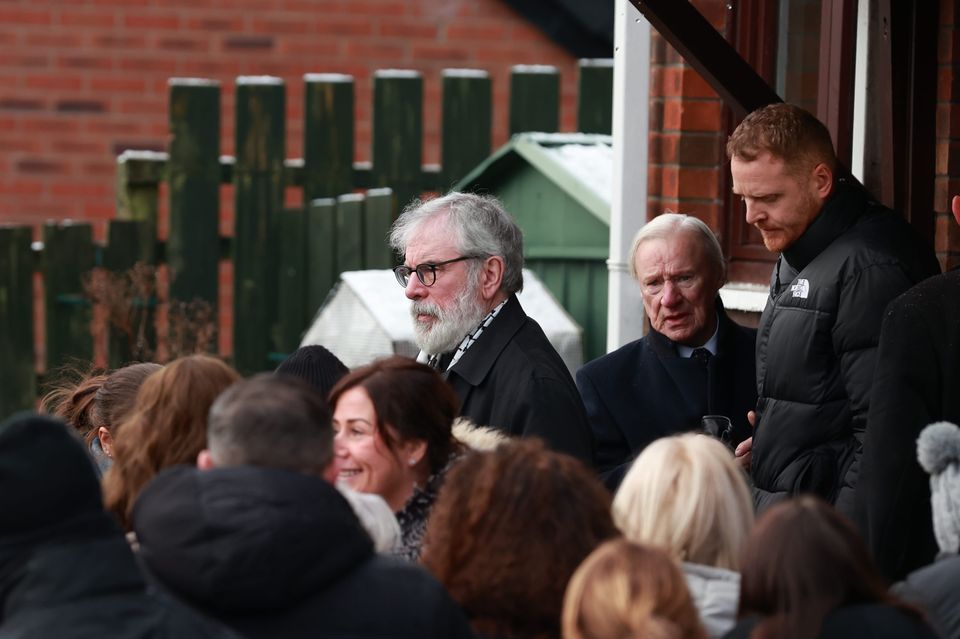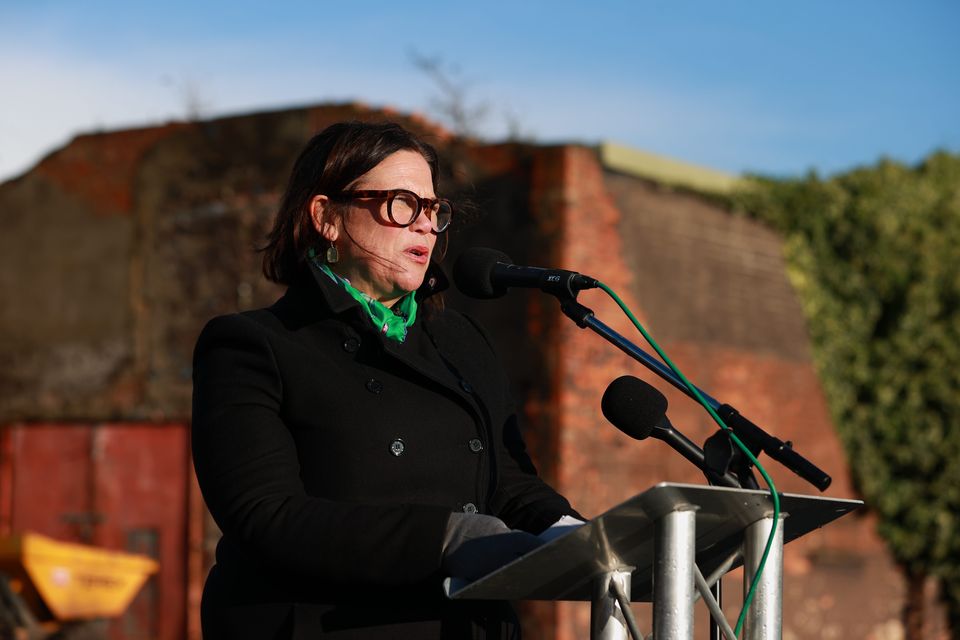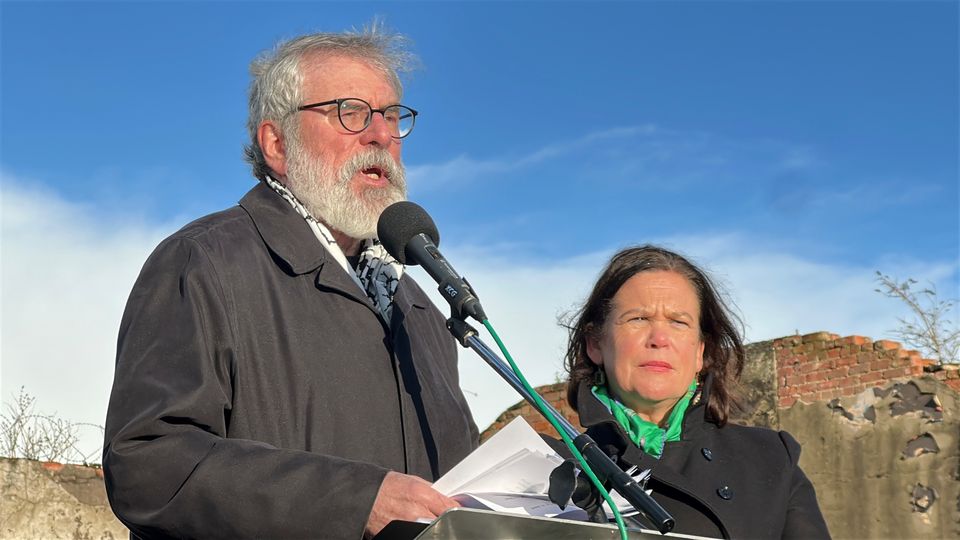Sinn Fein president Mary-Lou McDonald has paid tribute to lifelong Irish republican Ted Howell as a “patriot” during his funeral in west Belfast.
Ms McDonald, as well as Sinn Fein vice president Michelle O’Neill and former president Gerry Adams took turns helping to carry Mr Howell’s coffin from his family home to Milltown cemetery where he was laid to rest alongside his wife.
Mr Howell, one of the party’s key backroom figures through political negotiations and the Stormont Assembly, died at the age of 78 last week.
His funeral heard that mourners came from across the world, including the United States, Canada, Spain and South Africa to attend.
Former Sinn Fein president Gerry Adams leaving the home of Ted Howell (Liam McBurney/PA)
The funeral service was conducted by Father Gary Donegan at Mr Howell’s home, and broadcast from the house to those gathered outside in falling snow on Tuesday morning before the procession to the cemetery.
Mr Howell was a strategist and negotiator for Sinn Fein and believed to be a close adviser to Mr Adams.
He took part in the Good Friday Agreement negotiations and talks on the New Decade/New Approach powersharing deal in 2020.
He also served as Sinn Fein’s director of foreign affairs during the Troubles and was a member of the party’s ard comhairle (national executive).
During the so-called cash for ash inquiry, it emerged that Sinn Fein’s finance minister at Stormont, Mairtin O Muilleoir, had sought approval from Mr Howell to sign off on a business plan for the Renewable Heat Incentive scheme.
This was used to criticise Sinn Fein as a party ultimately controlled by “shadowy” figures.
Speaking at Milltown, Ms McDonald said tributes have been paid to Mr Howell from people across the world.
Sinn Fein president Mary Lou McDonald giving a graveside narration for Ted Howell at Milltown Cemetery in Belfast (Liam McBurney/PA)
“Ted Howell was a patriot, a family man, a proud Belfast man, a united Irelander, an internationalist and it is no surprise that we have travelled from the four corners of Ireland but also from Canada, from the US, from Britain, from the Basque country and that messages have poured in to Ted’s family and friends from all four corners of the globe to recognise this extraordinary man,” she said.
“Ted Howell was a significant figure in the Irish struggle for freedom from his earliest days and he remained a true and faithful servant of our struggle until his very very last.”
Mr Adams, described as a lifelong friend of Mr Howell, recalled sharing a bunk bed while they were both interned at Long Kesh prison camp in the 1970s.
“All of us will have stories of Ted – his family members, his lifelong friends, his neighbours, his comrades, his local butcher, his drinking companions, former prisoners, people from the Felon’s Club or the Horseshoe bar, Gaza or the Basque country, Long Kesh or London or the USA, Canada or South Africa,” he said.
“Stories about his humour, his generosity, his loyalty, his lifelong commitment to republicanism and those of us who worked with him for decades value his friendship and his mischief making, his craic and his insights into the human condition. Ted’s life was full and he loved life, and no oration can do justice to him.”
Mr Adams went on to recall Mr Howell living in Canada for just a couple of months, and returning to Belfast amid the civil rights campaign and saw a “warzone” develop following the events including the battle of the Bogside and Bloody Sunday in Londonderry and the introduction of internment.
Sinn Fein leader Gerry Adams giving a graveside narration for Ted Howell at Milltown Cemetery in Belfast, alongside Sinn Fein president Mary Lou McDonald. (Liam McBurney/PA)
“Ted took part in protest marches then he joined the Irish Republican Army,” he said.
“In March 1972 he was arrested, he was interned, first on the prison ship Maidstone and then in Long Kesh camp.”
Mr Adams described the 1980s as being a “significant decade of change for Sinn Fein … building a peace strategy”, talks with then SDLP leader John Hume and moving into the 1990s when multi party talks resulted in the signing of the Belfast/Good Friday Agreement in 1998.
“Ted was at the heart of it all,” he said.
“Ted had great politics …. he understood strategy and the need for the national question to be constantly at the centre of Sinn Fein’s strategy and of all our work. He was a member of the party’s uniting Ireland committee up until his death.
“He was also deeply involved in Sinn Fein’s international outreach, he sought help for the Irish cause but also provided help to other liberation struggles and peace processes.
“Ted was one of us, he was the best of us.”


